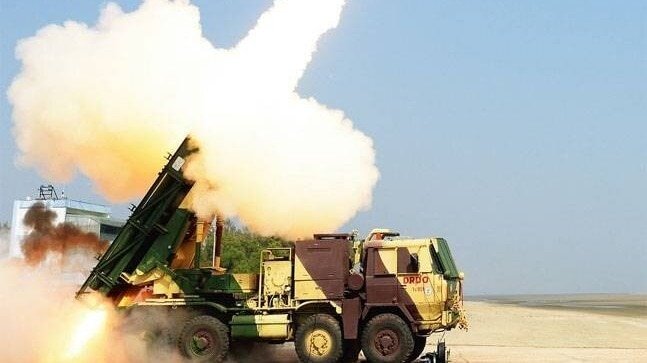Stock market: Investor sentiment showed signs of caution in late trading on Thursday, as geopolitical tensions between India and Pakistan escalated. According to reports, air defence units of the Pakistan Army in Sialkot and Lahore were reportedly damaged earlier today. Loud explosions were also heard in Karachi, following similar incidents in Lahore.
On the other hand, Pakistan has escalated ceasefire violations along the Line of Control (LoC), with incidents recorded in Kupwara, Baramulla, Uri, Poonch, Mendhar, and Rajouri. These violations have involved the use of mortars and heavy-calibre artillery, raising concerns over increased hostilities in the region.
At the time of writing this report, the BSE Sensex, which was trading flattish earlier, shed 354.36 points, or 0.44 per cent, to 80,392.42. Nifty traded at 24,264, down 150.40 points or 0.62 per cent. India VIX, which suggests the likely market volatility over the next 30 days, soared 10.16 per cent to 21 level.
Sources informed Business Today that Indian drone operations reportedly targeted up to 10 locations across Pakistan. The strikes are said to have impacted HQ-9 missile defence systems, which are of Chinese origin.
Unconfirmed reports suggest that key defence infrastructure of the Pakistani military may have been significantly affected in cities including Lahore, Sialkot, and another unnamed location. These developments are understood to be in response to the discovery of missile debris in Amritsar, which Indian authorities allege originated from across the border.
“Since the 1990s, several high-stake India–Pakistan episodes—from Kargil and Parliament attacks to Uri and Pulwama—have tested nerves. But the Sensex has consistently demonstrated a remarkable immunity to sabre-rattling. Market corrections, if any, have been modest, short-lived and largely sentiment-driven. Fundamentals have prevailed,” Anand Rathi said in a note.
Disclaimer: Business Today provides stock market news for informational purposes only and should not be construed as investment advice. Readers are encouraged to consult with a qualified financial advisor before making any investment decisions.

